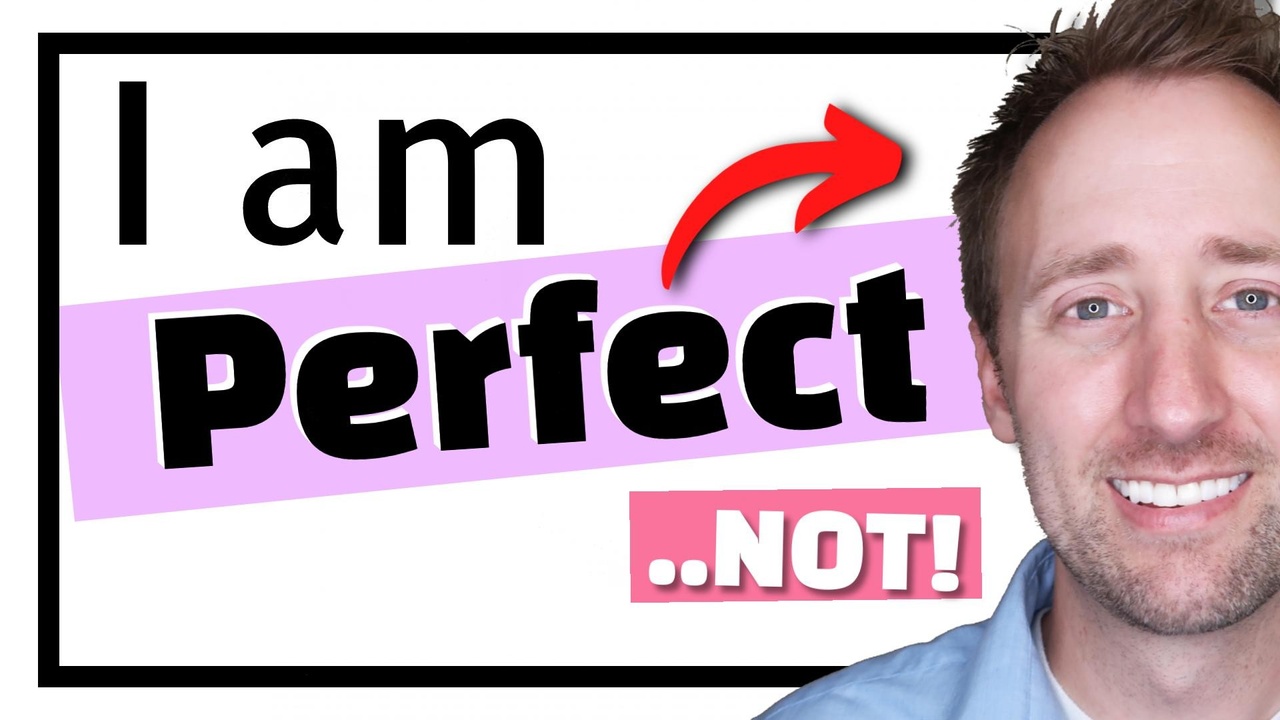Perfectionism OCD
Aug 29, 2022
Perfectionism OCD
This is Nathan Peterson, licensed clinician and OCD specialist.
Did you know that not all protectionism is bad? I'm going to get right into what healthy perfectionism and unhealthy perfectionism look like.
Healthy is goal oriented behavior. Great organizational skills. Persistence and a high standard for yourself.
Unhealthy perfectionism May consist doubts whether you're doing something correctly or not. Creating unrealistic expectations for yourself. Maybe having a preoccupation with past mistakes. A high level I thought when it comes to making decisions and the fear that you might make a new mistake. Correcting or fixing something over and over and over again until it's just right.
Let's go over what perfectionism OCD looks like and what we're going to do with this pesky need to be perfect.
This is one of the key phrases to remember. Just right. Individuals may feel this intense emotion (often anxiety) if something is wrong, even if it's not. They may spend hours trying to correct something or do a behavior until this feeling feels okay or until it's just right. This could be reading something over and over and over again because the brain says all right and if you don't do it again you probably won't get a hundred percent on that assignment. The trick is it doesn't seem to be a point or the brain says, that's it! You are perfect and you got it.
Do your best. That is something we've been taught our entire life. Our whole society is based off of succeeding and competing with each other. What is this advice actually starts controlling your life. You don't feel like anything is good enough. You even gotten 100% on an assignment but you know there's an extra credit point I could have given you a 101% --- a lot of this has to do with self-worth and really anxiety. When your self-worth is defined by your achievements yet you are not happy with any of them thus creating the need to correct and perfect all over again.
Somebody has an unrealistic a goal of themself that really is unattainable, they try endlessly to to succeed and they will continue to ruminate on this goal that is simply not ever going to be met. and when this goal is not met, it only drives them to continue working on it in feeling anxious and worthless by the same time.
Some may say, who cares if somebody has a high goal of themself. Well, the difference between someone setting goals vs. Perfectionism is that with perfectionism they're feeling a lot of anxiety, they're doing a lot of repetitive behaviors that are often unnecessary and doesn't take them closer to a goal.
In short, perfectionist make no room for mistakes. They may be preoccupied with past mistakes in fear future failures. They may see others around them and have a high expectation and standard for them as well.
In short, we're going to mess this it all up. We are going to use what is called exposure and response prevention. actually we'll practice making mistakes on purpose. We will do something wrong. We're not going to do anything that breaks your morals or values. Instead we are going to find the thing it matters to you the most and mess it up. Maybe I send a text message to my friend with a lot of misspelling. I might actually not read a page in my textbook. I'm going to do the things that make me feel nervous and anxious and respond completely different to them. I'm going to risk that people might judge me. My response is important. If I send a text with a lot of misspelling I don't sit there and say, I hope they're not judging me. instead, I might be saying I sure hope they judge me today. Man I love making mistakes. They may or may not be judging me. I'm possibly never getting into that College. I sure hope I miss a question on my assignment. Because I feel the need to re-read this phrase I'm actually going to read it backwards. I'm going to purposely not know this thing right now.
What happens is that my brain learns actually I'm okay. That when there is an actual problem we will solve it. If someone judges me someday, I say, bummer. That's too bad. eventually we are living a life we want to live. We can have those moments of satisfaction but know that it doesn't mean everything. We grow with this feeling of not being satisfied and not feeling like we did well enough. We don't always have to take action just because we had that feeling.
So with the treatment name, exposure and response prevention, you are exposing the fear that you were making a mistake can you are responding as if you simply don't care. You're choosing to feel anxiety on purpose. These feelings can't last forever which is why we keep practicing it over and over and over again.
What mistakes are you going to make today? How can you be imperfect? can you know what's related a lot this perfectionism, this feeling of being just right which is talked about in this video right here on the screen. Go to it right now if you experience this as well.
















